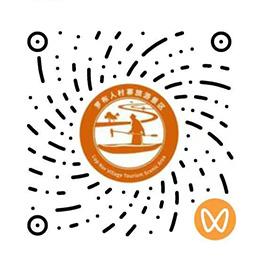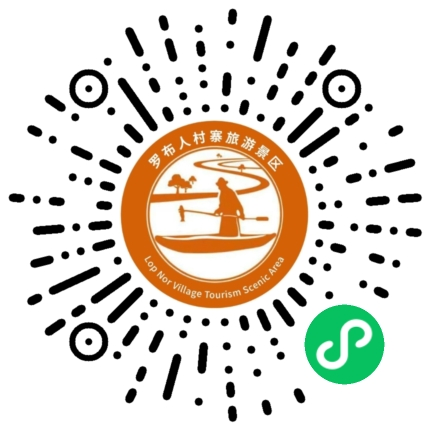The Lop Nur People Village Scenic Area is located in Dunkuotan Township, Yuli County, 28 kilometers away from the county seat and 48 kilometers away from Korla City, the capital of Bayingolin Mongolian Autonomous Prefecture, with a total area of 132 square kilometers. The Luobu people's village has been upgraded and invested in by China Green Development Investment Group. Based on the original ecological villages, we will deeply integrate desert ecological protection with cultural tourism economy, and create a first-class desert cultural tourism and vacation destination that integrates tourism sightseeing, ecological protection, and cultural continuity.
The scenic area is positioned as a world-class tourist and vacation destination, an immersive experience of Loulan civilization, and an exploration site of unsolved mysteries, focusing on the deep cultural presentation of the ancient ethnic group of the "Lop people". The Lop people are one of the oldest ethnic groups in Xinjiang, named after living in the Lop Nur region. During their long migration by water, they blended and coexisted with surrounding ethnic groups. They do not grow grains, do not graze livestock, and only rely on fishing boats for food. They have unique folk customs, wedding etiquette, and song and dance art, and also possess many intangible cultural heritage treasures, which are the vibrant cultural soul of the Luobu people's villages.
The fully renovated and upgraded Robu village is a cultural destination for experiencing local customs and a "cultural tourism hotspot" for exploring the sandy sea. The comprehensively upgraded tourist center brings comfortable and convenient high-quality services; On holidays, witness the welcoming ceremony of desert tribes in Abudan Square; The Silk Road Bazaar restores the prosperous commercial scene of the ancient Silk Road, bringing a dazzling cultural feast; Immerse yourself in the cultural customs of the Robe people in the old village, and transform into a "one-day Robe person"; Experience thrilling sand sea adventure projects on Dongsha Mountain, suitable for entertainment projects of all ages; In addition, there are also specialty dishes such as Robe Grilled Fish, Robe Grilled Sheep, and Red Willow Meat Skewers, opening up a wonderful journey in the desert.
In the scenic area, you can experience the customs and culture of the Lop people, and the unique world-class landscape is not to be missed. The brilliant golden autumn of Populus euphratica forest, the vast starry sky of Taklamakan, and the endless vitality of Tarim River, enjoy the perfect combination of culture, cuisine, and nature here.
Explore the civilization that has never disappeared deep in the sand sea, and understand the national connotation of the wisdom and resilience of the Robe people. Lop Nur People Village is actively striving to create a 5A level scenic spot. With the advancement of the second phase project, efforts are being made to build a new Silk Road cultural and tourism landmark that integrates culture, ecology, vacation, and study, becoming a shining business card of Xinjiang's cultural and tourism industry.
-
Tourist CenterMore
The Tourist Center is located at the scenic area's North Gate, serving as a comprehensive hub that provides all-around, high-quality services for the general tourists. This place integrates core functions such as intelligent guided tours, ticket handling, and tour protection, dedicated to creating a comfortable and convenient service environment for tourists, providing detailed and thoughtful intimate service.
The Tourist Center is equipped with an experienced guide team, providing detailed scenic area explanations and itinerary planning suggestions for tourists, allowing you to deeply understand the scenic area's historical culture and characteristic views; the distinctive cultural creative shop gathers numerous exquisite cultural creative products infused with the distinctive charm of the Lop people, making it an ideal choice for preserving travel memories and selecting gifts.
In terms of convenient services, the Tourist Center provides intelligent parking services, making vehicle parking more efficient and orderly; a 24-hour emergency rescue team is always on standby, ensuring that tourists can receive timely assistance when encountering unexpected situations during their tour; at the same time, the complete ticketing and guided tour service system can help you quickly complete ticket procedures, obtain accurate tour information, effectively improve tour efficiency, and guarantee the entire journey is smooth and worry-free.
-
AbudanMore
"Abudan", in the local language context meaning "water plants abundant and beautiful, suitable for living good place". It not only is a vocabulary full of good meaning, more is a place name carrying deep culture and spirit connotation. It presents is an ethnic group and nature harmonious co-existence totem universe, more is desert civilization and Lop civilization blend collision deep mark, tells the Lop people ethnic group long history and unique cultural gene. Square inside more has Silk Road bazaar, as if crossing time and space, with own eyes see the Silk Road's prosperous scene. Bazaar inside watch Lop people traditional style song and dance performances, experience various non-legacy hand crafts, all kinds of handicrafts and cultural creative products dazzling. Taste special Lop people grilled fish, Lop people roasted sheep and other special foods, feel multi-ethnic blend under the world's smoke and fire. Abudan Square uses its unique silent posture, the Lop people's history, present and future tightly connects, becomes read Lop civilization the most direct window, lets every visitor can here touch an ethnic group the deepest cultural texture.
-
Old VillageMore
The Old Stockaded Village, a settlement of the Lop people, carries within it millennia of historical memory and unique cultural codes of the Lop ethnic group. For generations, living by fishing and hunting, the Lop people have nurtured a highly distinctive ethnic culture on this land nestled between deserts and rivers.
They worship the sun, integrating their reverence for light into every aspect of daily life. Sun totems can be seen everywhere in the village's architecture and artifacts, serving as vivid symbols of the community's spiritual beliefs. The Lop people, gifted in song and dance, express their passion for life through melodious tunes and convey their joy through lively dances.
In the Old Stockaded Village, visitors can see the traditional Lop dwellings known as "Satoma," experience the lifestyle of living close to water, and learn about their unique fishing and hunting techniques. Buildings made of poplar wood along the paths exude a raw, natural charm. Step into a traditional Lop wedding room for an immersive experience of their marital customs and distinctive traditions. Feel the enduring legacy of life in the plants, and discover intangible cultural heritage crafts such as "Palazi" weaving and poplar wood carving. Deep within the Old Stockaded Village, one can fully appreciate the blend of desertscape and Lop culture, sensing the timeless essence of an ancient people who have steadfastly preserved their way of life through the ages.
-
Dongsha ShanMore
Dongsha Mountain is a unique secret realm where deserts and lakes intertwine, hiding both the heroic spirit of galloping in the sand sea and the leisurely relaxation by the lake, outlining an ecological picture that is suitable for both movement and stillness. Dongsha Mountain during the day is a natural color palette of nature, with sunlight shining on the gravel, reflecting either golden or slightly red light. After nightfall, looking up, you can see the sky full of stars, shining together with gravel, as if you are on the edge of the Milky Way, bringing ultimate romance and imagination. Every sharp turn and dive climb in desert extreme off-road can make your adrenaline soar, allowing you to unleash wildness and vitality in the vast desert sea, and feel the exhilaration of conquering the desert. After the excitement, come on a cycling trip around the lake, feeling the clarity of the water and the grandeur reflected by the sand dunes along the way, making your heart calm down. There is also a desert pet paradise and No.7 coffee, overlooking the sandy sea and lakes, sipping on the fragrant wine in the cup, and quietly experiencing the comfort and ease of being away from the hustle and bustle together.
-
Goddess LakeMore
Shennu Lake, known as "a blue tear in the Taklamakan Desert", is the most touching landscape in the Luobu Village Scenic Area. It lies quietly in the continuous golden sand sea, outlining the miracle of the desert and lake embracing each other with a pool of blue waves. Regarding its name, it is said that it is a lake formed by the Sun Daughter as a manifestation of love, and its clear and holy lake water will forever nourish and protect this land. Nowadays, tourists can enjoy boating on the lake, experiencing the vastness of the desert and the softness of the lake from a unique perspective. They can also take stunning photos of sand and water complementing each other and poplar trees standing upside down by the lake, experiencing the ultimate contrast and romance.











